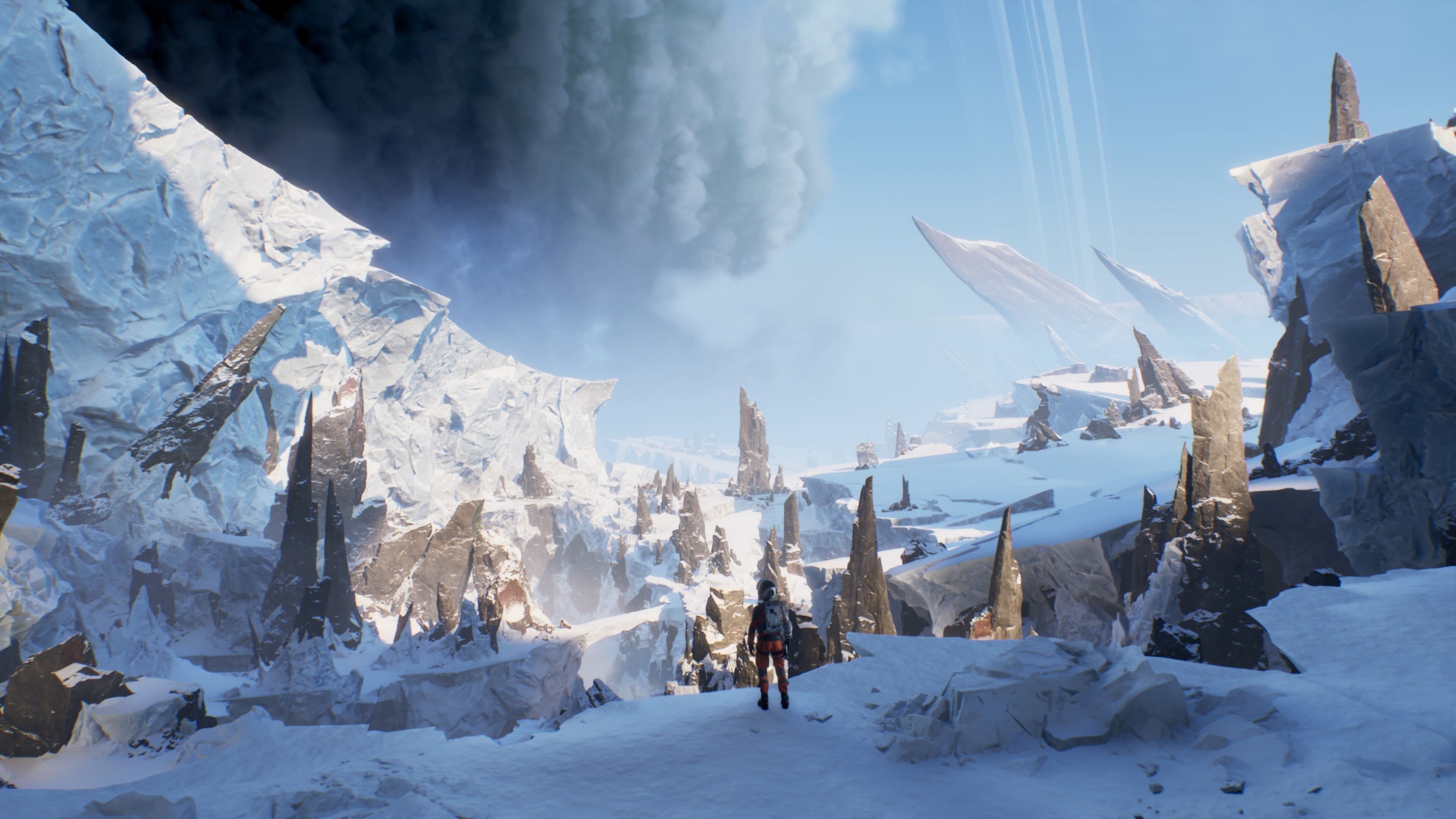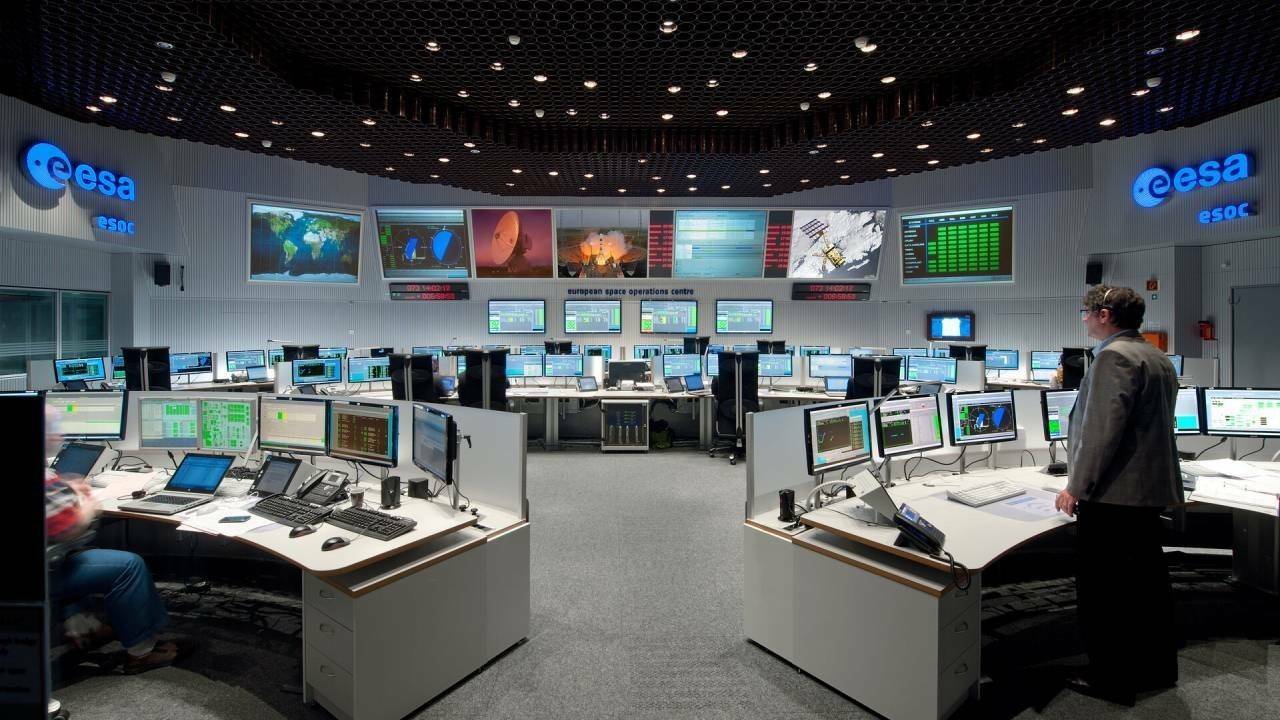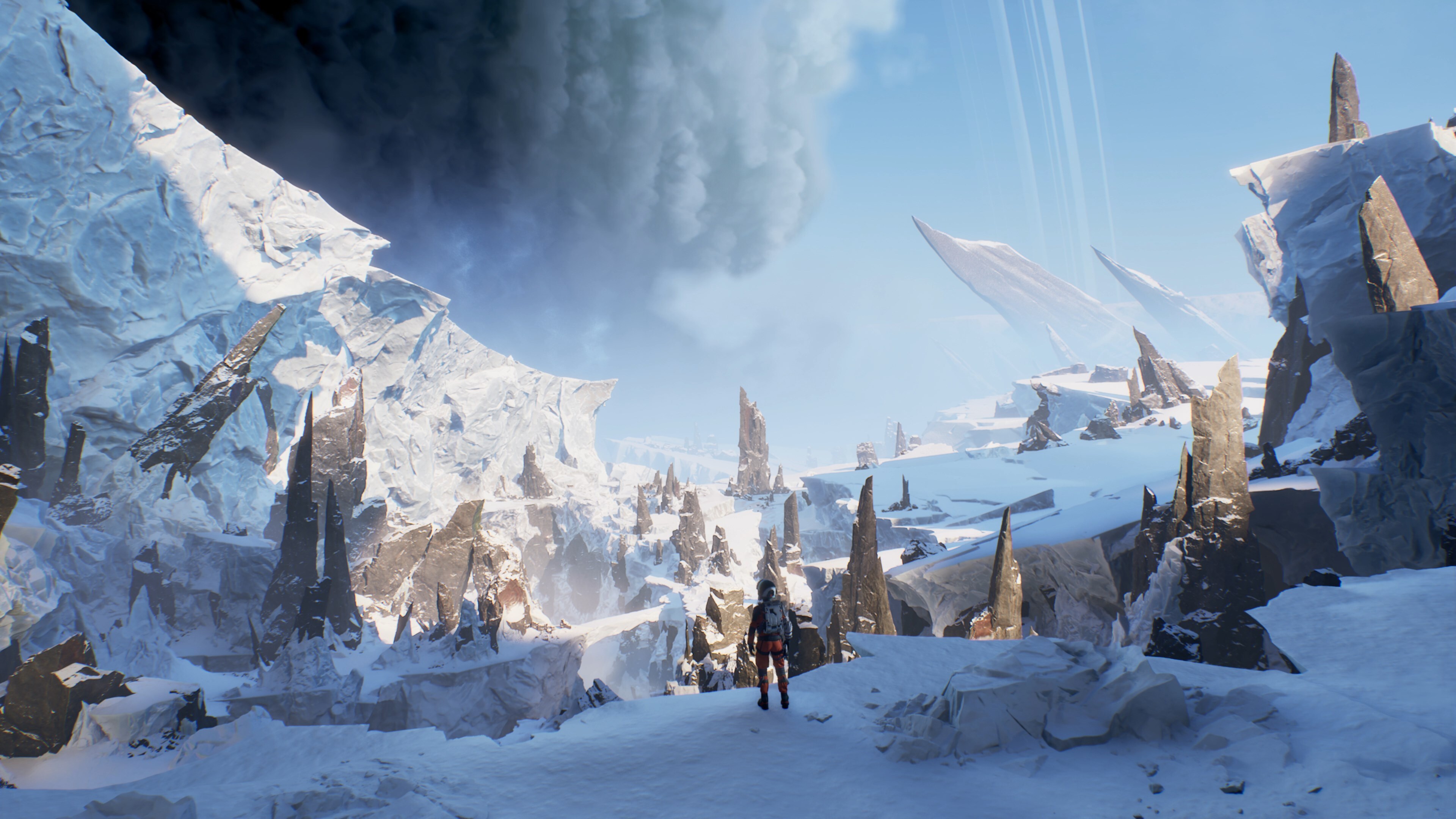Venturing into the great unknown – with certified realism.

The most recent Xbox Showcase included the announcement of a surprising partnership: For their first space adventure, the French developers at DON'T NOD are cooperating with the European Space Agency (ESA).
What Is Aphelion?
The plot of the third-person action-adventure title, planned for 2026, is set in a dystopian future: In the year 2060, Earth has become uninhabitable for humans. At the same time, however, a ninth planet – Persephone – has been discovered at the edge of our solar system.
Players take on the role of two astronauts, Ariane and Thomas, who were sent to the icy planet by the European Space Agency (a fictional version, not the real one) to explore whether or not it might offer a suitable alternative as humanity's second chance. Unfortunately, as revealed in the trailer, they themselves crash-land in the process, transforming the scientific mission into a desperate struggle for survival.
Overall, the game's primary goal is said to be exploring the interpersonal dynamics of such a space mission. This focus on the emotional aspects fits well into the existing lineup of DON'T NOD, a studio known for its narrative-driven works such as Life Is Strange and Twin Mirror.
Why ESA?

Judging by official press statements, the ESA appears to be playing a primarily advisory role in the development of Aphelion: The aim is to make the depiction of the mechanical and social processes of a space mission as realistic as possible, even if the premise itself may not be (the existence of giant monsters in the ice of Persephone has already been hinted at).
ESA Partnership & Branding Officer Nadia Lüders summarizes it this way: "For fifty years, ESA has combined rigorous space science with the boundless imagination of science fiction to explore solutions to our planet's greatest challenges. Aphelion captures that spirit – where research meets imaginative vision – to inspire the next generation to carry Europe's space ambition into the future."
Aphelion is not the European Space Agency's first attempt to interest younger audiences in space exploration and thus potentially recruit future personnel. For example, the agency, which is closely integrated with the European Union's space program has already made its presence felt at last year's Gamescom.
Do you think such a marketing push will help EAS's cause? Or will this collaboration have little impact in practice? Let us know in the comments!


































